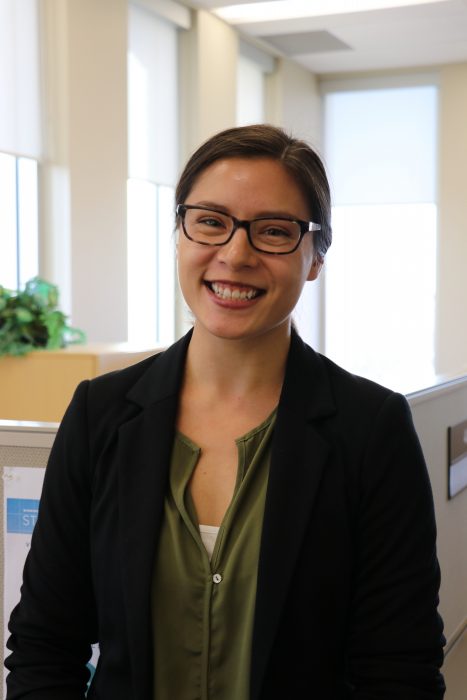
The VADA program is a collaboration between the University of Manitoba and University of Victoria that trains graduate students in different disciplines to translate complex health data to monitor and prevent the outbreak of infectious diseases.
‘American Idol’ brings data to the fore
Students in the Visual and Automated Disease Analytics (VADA) program this summer will take part in an intensive two-day competitive workshop that gives them a unique opportunity to work with authentic pre- and post-natal nutrition research data.
The session will follow a fast-paced challenge structure where the students will be placed into teams and given two days to find novel solutions to the problems put forward by Dr. Meghan Azad, Canada Research Chair in developmental origins of chronic disease at the University of Manitoba, based on her research into breastmilk.
“It reminds me of American Idol, where strangers are put into teams and work intensively over a short period of time to create a performance together – except here, the challenge is a complex data problem instead of a song,” said Azad, assistant professor, pediatrics and child health, Max Rady College of Medicine and research scientist at Children’s Hospital Research Institute of Manitoba.
She noted the students come from a variety of different fields, such as statistics, data science, psychology and population health, and she’s excited to see what they come up with.
“When you bring people from different disciplines together, you get the most creative outputs,” she said.
Azad’s research was part of the CHILD Cohort study, a national study that involves 3,500 families and dozens of researchers from Vancouver, Edmonton, Toronto and Manitoba. She co-leads the Manitoba site of the CHILD Cohort Study.
Through grants and funding from Children’s Hospital Foundation, the Canadian Institutes of Health Research, Research Manitoba and the Canadian Lung Association, Azad’s team has analyzed different components of breastmilk, including hormones, fatty acids, sugars and bacteria.
“We’ve measured these components one at a time, but what I really want to do is analyze the measurements all together to get a more meaningful idea of their combined importance together, which is very complex,” she said.

Naomi Hamm is looking forward to learning more about analyzing microbiome data in the VADA summer program.
Naomi Hamm, a PhD student in community health sciences, Max Rady College of Medicine, is in her first year of the VADA program and looks forward to the data challenge.
“I have not been able to work with microbiome data before so I’m hoping to gain a better understanding of how to analyze and work with it, both by working on it with my group and seeing how other groups use the data,” she said. “I just really like learning new things with data in general – I’m a huge data nerd.”
Ali Neshati, a third-year computer science student who is in the second year of the VADA program, said the experience is intense, but fun, and he looks forward to being a team leader this year and working with real data.
“Using a real dataset is a good motivation for students to work carefully, since they try to solve a real-world problem, and finding a solution can help a lot of people around us,” he said.
He said that in the first year he learned a wide range of skills beneficial for a data scientist, such as data visualization tools, team communication and how to present data to a non-academic audience.
“I learned that we should not underestimate many of these skills,” he said. “For example, some of the teams last year had problems communicating together and, because of that, they could not get a good result.”
The VADA program is a collaboration between the University of Manitoba and University of Victoria that trains graduate students in different disciplines to translate complex health data to monitor and prevent the outbreak of infectious diseases. The two-day session is part of the program’s five-day summer school program. Registration is open until May 31.






